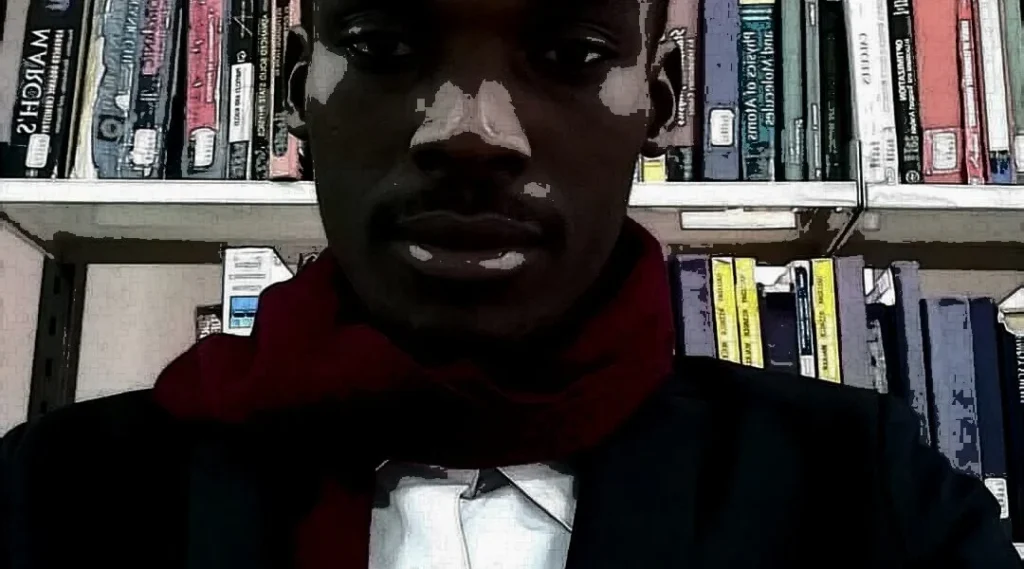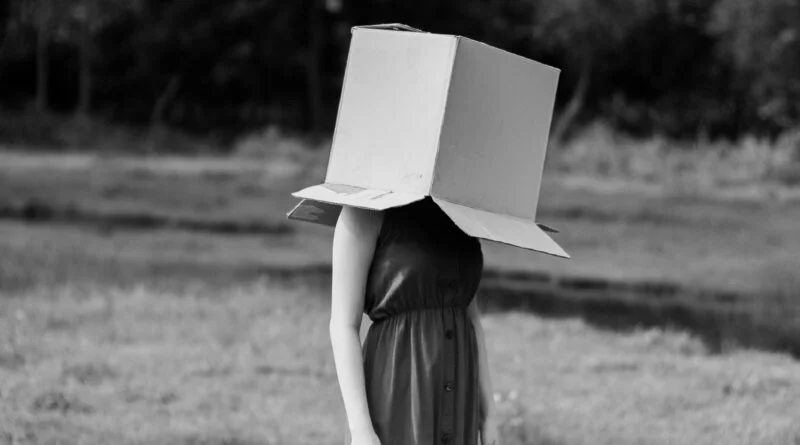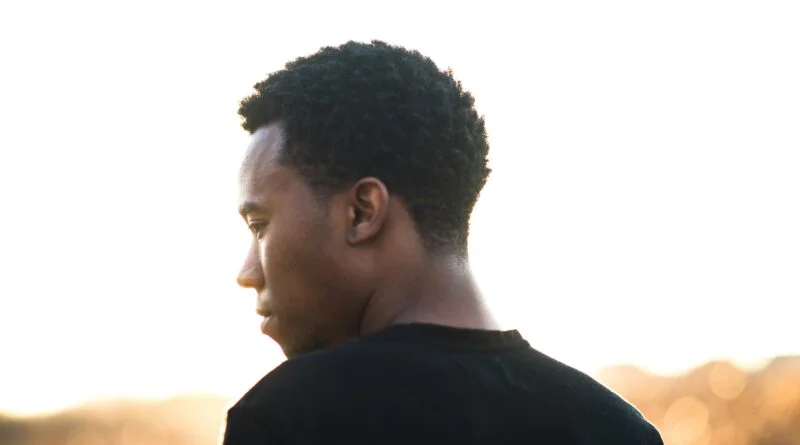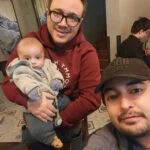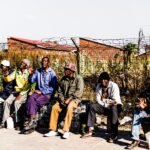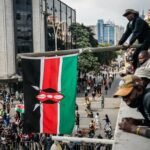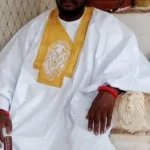- Unbreaking The News
- Work
- Life
- Lifestyle
- HumanityDiscover the latest trends, style tips, and fashion news from around the world. From runway highlights to everyday looks, explore everything you need to stay stylish and on-trend.
- Mental HealthStay informed about health and wellness with expert advice, fitness tips, and the latest medical breakthroughs. Your guide to a healthier and happier life.
- Science & Technology
- Literature
- About Us
- Unbreaking The News
- Work
- Life
- Lifestyle
- HumanityDiscover the latest trends, style tips, and fashion news from around the world. From runway highlights to everyday looks, explore everything you need to stay stylish and on-trend.
- Mental HealthStay informed about health and wellness with expert advice, fitness tips, and the latest medical breakthroughs. Your guide to a healthier and happier life.
- Science & Technology
- Literature
- About Us
Now Reading: Less Manic, More Connected
-
01
Less Manic, More Connected
- Unbreaking The News
- Work
- Life
- Lifestyle
- HumanityDiscover the latest trends, style tips, and fashion news from around the world. From runway highlights to everyday looks, explore everything you need to stay stylish and on-trend.
- Mental HealthStay informed about health and wellness with expert advice, fitness tips, and the latest medical breakthroughs. Your guide to a healthier and happier life.
- Science & Technology
- Literature
- About Us
- Home
- Mental Health
- Less Manic, More Connected
Less Manic, More Connected
Mental Health, Editorial, Editors' Pick1 month ago42 Views

This world is too complicated!
I have lived a life valuing the strength of the human connection in this complicated world. In my journey, I discovered the strong interconnection between language and human emotions.
The journey begins — honeymoon in France
This journey commenced when I started learning French. I never thought it would have such a dramatic impact on my life. I completed four years of learning French, and in those four years, I earned college credit that I was able to transfer to a Jesuit University in the Midwest, to major in French. In those four years, I immersed myself in grammar and literature. In my junior year, I went to study in Strasbourg, France. I studied there for around five months where I lived with a French family during the first month. Being all by myself in a foreign land troubled me. Everything was entirely new — culture, people, and food. I ate the best food of my life with my host family while I moved around the French city. Our weekends included enjoying lengthy meals while having endless conversations. In my first month, I went through the honeymoon phase — living overseas in a different culture so distinct from my own.
The first undertone(Photo Courtesy of Milada Vigerova via Unsplash)
In the first few months I studied there, I immersed myself in French. Along the way, I often stopped by a bakery or pastry shop sitting on almost every corner of the city. I had the opportunity to meet other French students from the university, and we quickly became friends. After months passed, I became more adapted to the culture and saw the world from a different viewpoint. By the summer after the classes ended, I was missing my family again and made plans to return home. Upon reaching home I shared my photos of France and all the details of the exciting experience I had enjoyed during my stay. Unfortunately, when I returned to my university with so much time passed, the friends I had made seemed uninterested in my stories from my overseas trip back home. Their lives had changed — never knew life would change so fast. I thought everything would be the same — friends would be the same old friends.
For them, I was no longer important. I felt isolated and became depressed, and so I threw myself into my studies in the last semester. This was the first time I became depressed. I had no knowledge then of my family background with mood disorders.
Career advancement

(Photo courtesy of Armand Khoury via Unsplash)
In 1994, I began my career as an administrative assistant for the Center of International Relations in my hometown . My hometown had many sister cities, and when I started at this company, the city was setting up a sister city relationship with a city in Senegal. The signing of the sister city treaty between the two was marked with celebrations and special events showcasing and welcoming the Senegalese local government officials. I remember the event so clearly with officials from Senegal — speaking with them in French. It was a great honor for me to communicate with important delegates in their own language, and I knew that it would take me far in terms of preparing me for my next career position.
In 1997, two years after my previous job, I was employed by a global mobility company as a relocation consultant with varied responsibilities. While I did learn a lot in the relocation field while working here, I didn’t advance in my position. After three years of unhappiness with my job I decided to move with the hope I might find better career opportunities there.
Since my move, I have had great success in the global mobility and language education market, working for many companies and local language schools.
The breakdown — slide into mania

(Photo Courtesy of Nik via Unsplash)
Unfortunately, in 2002, I suffered a mental health crisis with mania and depression, and it hurt me greatly at work. Yet I was not willing to believe that my actions were the reason for my poor job performance.
When I got engaged in December of 2002, I only focused on planning our wedding.
I became obsessed with wedding details, spending two to three hours on the computer daily. I lost sleep and began my slide into mania and showed up late at work. I became agitated and anxious at times. I ignored it.
Several months later, I went to the emergency room at a nearby university hospital to seek care. Eventually, I met a doctor who recognized my symptoms and asked me to make an appointment with the Mood Disorders Clinic at a local university hospital. I was taken off all my previous medications and went into bad withdrawal. My mind was racing and I could not quiet my thoughts…
The human touch
(Photo Courtesy of Aditya Romansa via Unsplash)
My mother visited some months later, after a visit from my sister (paid for by my brother, as she herself suffered from bipolar disorder), and my brother and my husband felt it would be of help. My mother lay in the bed alongside me. I was so agitated with her beside me that she could not sleep either. I was unable to remain still in bed, so without sleep, I had my head on my table with exhaustion. My mind was racing and I could not quiet my thoughts. In the mornings, she helped me eat breakfast and tried to get me to walk a little bit, as it was so difficult for me at that time to even walk down the street.
I cried after my mother left. My husband could not attend to me while he was at work and would arrange a schedule of activities for me. I continued to fall deep into my depression. The medications only stabilized my mood and anxiety and allowed me to sleep for a few hours at a time.
It was only after a whole year that I started a new medication shown to treat bipolar depression better. It was like a ray of sunshine piercing a cloudy world. After several weeks, I made a major recovery and could proceed with a subsequent trip to Southeast Asia.
Stability

(Photo courtesy of Dareius Bashar via Unsplash)
My fiancé and I traveled to Southeast Asia in December 2004 to get married, and then traveled to more places for our honeymoon. I learned from experience that when you travel or live in another country you must do as the Romans do — adapt to the different cultural manners, especially with how to dress and how to eat. I also had to dress more ‘modestly as a woman’ in that I couldn’t show my bare legs, and had to learn how to eat with my hands. I have faced more and more challenges along the way in every country I visited.
After my trip overseas. I returned with more stability and more confidence. I was able to take a class in Teaching Writing Online in a TESOL certificate program while I pursued returning to my career as an ESL instructor. My face-to-face classes, unfortunately, ended when the COVID-19 pandemic impacted the whole world. I had to transition to online lessons.
Only humanly possible
Since the COVID-19 pandemic hit in 2020, isolation has disturbed me. I needed human contact. I knew that in the years ahead, it would be very problematic for me without that connection. It changed my mode of communication with my family, as at the beginning of the pandemic we chose to connect over Zoom since we were all indoors with no direct contact with each other. It did bring us closer together and we have become a very close-knit family.
I have faced multiple challenges in my life and have overcome them. Through these challenges, I have understood the value of self-expression and human connection through emotions and language.
Global Citizen
This writing has been verified, edited and published by our editorial staff at the request of the writer, who wishes their identity to remain protected to ensure their privacy and security.
Thank you Tripti Mund and Yosef Baskin for their inspired edits on the piece.












